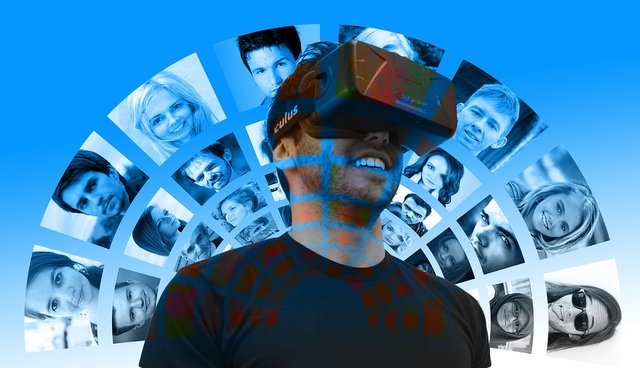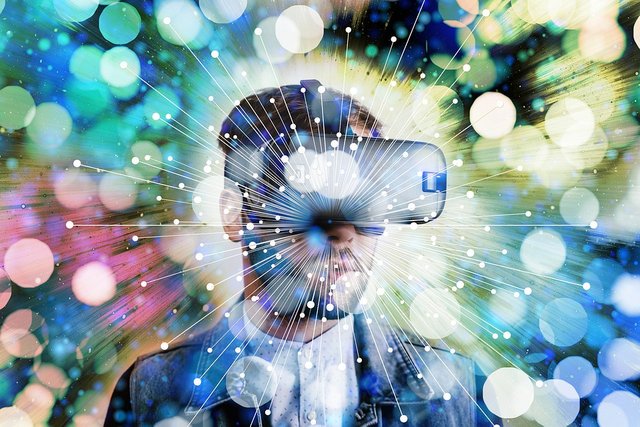
We may not be living on Mars or commuting to work using jetpacks, but there is no doubt that the next decade will bring many exciting technological advances.
Below, we show you the 25 key technology trends that will shape the 2020s.
Artificial intelligence (AI) and machine learning. The increasing capacity of machines to learn and act intelligently will absolutely transform our world. It is also the driving force behind many of the other trends on this list.
Internet of things (IoT). This refers to the increasing number of "smart" devices and objects that are connected to the Internet. Such devices constantly collect and transmit data, further fueling the growth of Big Data and AI.
Wearables and augmented humans. What started with fitness trackers has now exploded across an industry of wearable technology designed to improve human performance and help us live healthier, safer and more efficient lives. In the future, we may even see humans merge with technology to create "augmented humans" or "transhumans."
Big Data and augmented analytics. Big Data refers to exponential growth in the amount of data that is created in our world. Thanks to augmented analytics (highly advanced data analytics, often powered by AI techniques), we can now make sense of and work with vastly complex and varied data streams.
Smart spaces and places. Closely linked to the IoT, this trend is to see physical spaces, such as homes, offices and even entire cities, increasingly connected and intelligent
Blockchain and distributed ledgers. This super secure method of storage, authentication and data protection could revolutionize many aspects of the business, particularly when it comes to facilitating reliable transactions.
Cloud Computing. Cloud computing, where data is stored on other computers and accessed through the internet, helps brands get data and analyze it.
Digitally expanded realities. By encompassing virtual reality, augmented reality, and mixed reality, this trend highlights the movement toward creating more immersive digital experiences.
Digital cufflinks. A digital twin is a digital copy of a real physical object, product, process, or ecosystem. This innovative technology allows us to test alterations and adjustments that would be too expensive to test on the actual physical object.
Natural language processing. This technology, which enables machines to understand human language, has dramatically changed the way humans interact with machines, in particular leading to ...
Voice interfaces and chatbots. Alexa, Siri, chatbots - many of us are used to communicating with machines simply by speaking or writing our request. In the future, more and more companies will choose to interact with their customers through voice interfaces and chatbots.
Computer vision and facial recognition. Machines can speak, so why shouldn't they "see" too? This technology allows machines to visually interpret the world around them, with facial recognition being an excellent example.
Robots and cobots. Today's robots are smarter than ever and learn to respond to their environment and perform tasks without human intervention. In certain industries, the future of work is likely to involve humans working seamlessly with robot colleagues, hence the term "cobot" or "collaborative robot."
Autonomous vehicles. The 2020s will be the decade when autonomous vehicles of all kinds (cars, taxis, trucks, and even boats) become truly autonomous and commercially viable.
5G. The fifth generation of cellular network technology will provide us with faster, smarter and more stable wireless networks, thus driving advancements in many other trends (for example, more connected devices and richer data streams).
Genomics and gene editing. Advances in computing and analytics have fueled incredible leaps in our understanding of the human genome. We are now making progress to alter the genetic makeup of living organisms (for example, "correcting" DNA mutations that can lead to cancer).
Machine co-creativity and increased design. Thanks to AI, machines can do many things, including creating artwork and designs. As a result, we can expect creative and design processes to shift toward greater collaboration with machines.
Digital platforms. Facebook, Uber and Airbnb are well-known examples of digital platforms, networks that facilitate connections and exchanges between people. This trend is overturning established business models, leading many traditional companies to transition or incorporate a platform-based model.
Drones and unmanned aerial vehicles. These planes, which are piloted remotely or autonomously, have changed the face of military operations. But the impact doesn't stop there: search and rescue missions, firefighting, law enforcement, and transportation will be transformed with drone technology. And get ready for passenger drones too (drone taxis).
Cybersecurity and resilience. As companies face unprecedented new threats, the ability to prevent and mitigate cybersecurity threats will be critical to success for the next decade.
Quantum computing. Quantum computers, incredibly fast computers capable of solving seemingly unsolvable problems, will make our current technology look like something from the Stone Age. So far, work on quantum computing is largely limited to labs, but we could see the first quantum computer commercially available in this decade.
Robotic process automation. This technology is used to automate structured and repetitive business processes, freeing human workers to focus on more complex, value-added jobs. This is part of a broader shift towards automation that will affect all industries.
Massive customization and micro-moments. Mass customization is the ability to offer highly personalized products or services on a large scale. Meanwhile, the term "micro-moments" essentially means responding to customer needs at the right time. Both are possible thanks to technologies such as AI, Big Data and analytics.
3D and 4D printing, and additive manufacturing. Although this may seem low-tech compared to some of the other trends, 3D and 4D printing will have very broad applications, and will be particularly transformative when combined with trends like mass customization.
Nanotechnology and materials science. Our growing ability to learn about materials and control matter on a small scale is giving rise to exciting new materials and products, such as flexible displays.

Hello @cristhian357.
Could you explain to me what is the point of copying an existing publication and re-publishing it as if it were your own material?
Why do you do it?
https://www.forbes.com/sites/bernardmarr/2020/04/20/these-25-technology-trends-will-define-the-next-decade/#1140c4e829e3
https://www.technology-in-business.net/the-25-biggest-technology-trends-that-will-define-the-next-decade/
https://www.7wdata.be/data-management/these-25-technology-trends-will-define-the-next-decade/
Project Hope does not support plagiarism.
Downvoting a post can decrease pending rewards and make it less visible. Common reasons:
Submit
Indeed. It's not acceptable within our community.
Thanks for spotting it @juanmolina
Downvoting a post can decrease pending rewards and make it less visible. Common reasons:
Submit
The future that awaits us is very amazing, to me I'm particularly passionate about everything about robotics and AI I think we'll see in leaps and bounds a future where science fiction is reality. Good compilation, thanks for sharing.
Downvoting a post can decrease pending rewards and make it less visible. Common reasons:
Submit
Hi @cristhian357
Certainly the technological advances are surprising and the expectations that are glimpsed much more, nothing that we could imagine a couple of years ago resembles today's reality.
Downvoting a post can decrease pending rewards and make it less visible. Common reasons:
Submit
AI has a big place in the future and to an extent, it is scary. Blockchain sneaking into mainstream platforms is also inevitable. We will also see cryptocurrencies play a bigger role in the future, it might not really be the way we wish, but they will be adopted, on way or the other
Downvoting a post can decrease pending rewards and make it less visible. Common reasons:
Submit